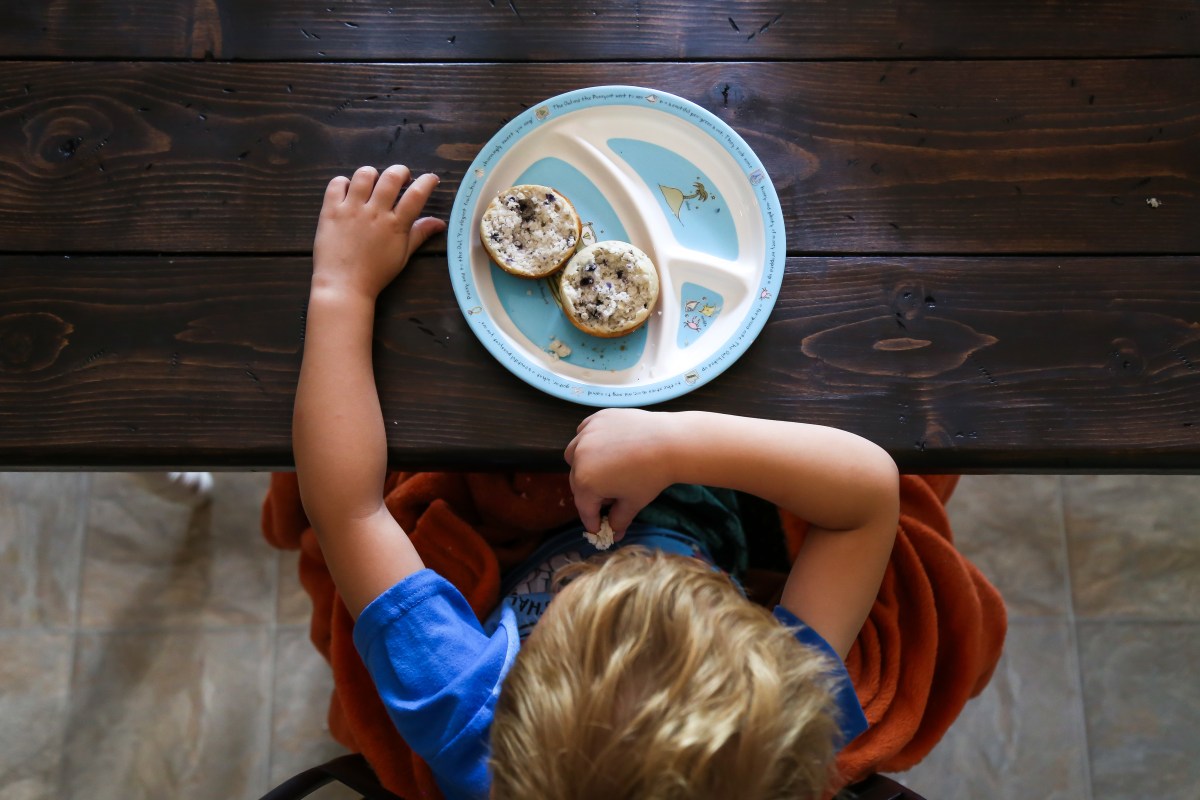Schools deserve more credit for keeping kids in shape. The figure that so often finds its way into 60 Minutes reports — 33 percent of American youth 19 or under are classified as overweight or obese — is generally intoned over images of the country’s grade-school cafeterias, where students feast on popcorn chicken and Otis Spunkmeyer cookies. But in reality, segmented schooldays are helpful: however stifling seven hours in the same building may feel to some students, that sort of reliability is crucial for maintaining a healthy weight.
When the last bell rings in mid-June, children abruptly end an active, regimented schedule predicated on predictable mornings, afternoons of social interaction, state-mandated physical-education programs and heavily monitored screen time — all against the backdrop of school districts that have been at least trying (ever since the lunch ladies’ “pink slime” additives got the Upton Sinclair treatment in 2012) to offer healthier lunch options.
Their new normal once summer is in session? Multiple months of poor diet choices, sleep irregularities and increased access to screens. According to reports from a five-year longitudinal study published in 2013 and a childhood weight gain review published that same year, that sudden change in routine is contributing to a disconcerting trend in “summer weight gain” amongst American kids. Most significantly, research suggests weight gain that occurs during the summer does not get worked off during the school year. More often than not, it’s maintained, and then amplified the following summer. These studies were given renewed attention earlier this year, after epidemiologist Dr. Andrew G. Rundle published a study in late March titled “COVID‐19–Related School Closings and Risk of Weight Gain Among Children.”
Dr. Rundle warned that a collision of expected summer weight gain with extra-long, COVID-caused summer breaks (which sort of started the second school officially became online school, back in April) could cause serious issues for a number of American children. While many states across the country have begun to open up, the normal haunts of summer — pool clubs, rec leagues, any place that would compel a kid to hop on his or her bike — are all operating under shades of uncertainty. The closest thing to school structure that concerns kids over the summer, meanwhile — camp — is facing delays, cancellations and according to some publications, the beginning of a long, slow death.
This puts more pressure on parents, obviously, who have to balance massively impacted work schedules with putting food on the table and keeping kids safe and entertained. Accomplishing just that should be enough; it feels almost ridiculous to ask for more. But during an extra-long summer, it’s extra-important to take the long view. Overweight children can (and most often do) become overweight adults, with an increased risk of cancer, heart disease or Type 2 diabetes. The best defense against such a future starts in the present, with an emphasis on healthy, whole-food eating, lots of movement and some semblance of a schedule — whether camp is in session or not.
This is easier said than done. At the heart of the obesity issue, even in a pre-COVID world, are families with limited room to move around and limited funds to spend on apples and broccoli. Whatever your means, though, there are some steps you can take to set up yourself, and by extension, your son or daughter, for a healthy summer. Below, find insight from 10 experts, who dish on peer pressure, cruciferous vegetables and why the “clean plate club” must end.

Get kids involved in the process
“Would you feed your kids dinner on a plate covered with chemicals? Of course not. Then eliminate the fast food. This is easier said than done, but by getting kids involved in growing food in a garden, it makes it more exciting to eat. Even frazzled parents will get rejuvenated by the engagement. Also, include kids in the cooking process. Getting them involved builds knowledge, life skills and development. Kids need lots and lots of outside exercise and exploration. It nourishes the brain and builds the body. Once again, easier said than done, but consider digging the vegetable garden or hiking for raspberries.”— Dr. Stephan Hoody, award-winning Nutritionist and Chiropractor, CEO/Founder of Novo Wellness & Weight Loss
“Teach kids how to cook. I’m a college professor and consistently meet students who have never baked so much as a cookie, and are reliant on fast food or processed food. Most want to eat healthy homemade food but just don’t know how. Get kids cooking early — it’ll keep your children occupied so they don’t eat out of boredom. Playing music while cooking, meanwhile, might even increase physical activity: encourage your kids to dance while waiting for timers to go off. Kids should know how to put together healthy snacks and healthy meals, and provide substitutes for normal high-calorie, high-fat options. I realize parents are exhausted from working and schooling their children during the pandemic, but everyone still needs to eat. Put in a little time now and teach them how to cook, and you will be rewarded in the future as they learn to prepare easy meals like spaghetti, tacos, pancakes and baked chicken while you relax and enjoy. It is important that you also teach them to clean up after themselves so they don’t create more work for you!” — Tracey Brigman, EdD, MS, RDN, LD, Clinical Assistant Professor at University of Georgia Department of Foods and Nutrition
Movement is the family’s best friend
“Instead of movies or sit-down activities, try to daily engage in body-moving activities the kids or family typically enjoys, such as impromptu dance parties with younger kids, biking outings, walks on the beach or along the river, playing frisbee in the park, swimming and hiking. And as a long-term strategy: when birthdays come along, try giving activity gifts that the child has shown interest in, such as horseback riding, surfing camp, dance class, martial arts. Sign them up for active camps rather than learning or craft camps.” —Ardell Broadbent, M.A. in psychology with emphasis om eating disorders
“Your kids are bored. They’ve been home for months. They miss their friends, they miss recess, they miss their extracurriculars. With so much time indoors, and so much at-home screen time, snacking and weight gain can skyrocket. What can you do? If it’s in your budget, buy the extras. Get the trampoline, get that slip ‘n’ slide, think about an above-ground pool. Alternatively, get creative: old-fashioned affordable items will still get the kids outside and playing. Chalk, bubbles, scooters, a baseball, tennis racquets … it all counts. When that fails, move to the air-conditioned indoors and enlist Youtube. Really. There are a ton of great kids’ fitness videos to follow along to. Try dance parties, Zumba, yoga for kids. This summer will be a distant memory soon enough.” —Allie Edwards of the Perfect Pregnancy Plan, personal fitness trainer
Establish some “no-fly zone” foods
“Don’t keep easy snacks in the house. No cookies or candy, no chips, no sweet drinks, no ice cream or sherbet or desserts. Focus on whole fruits, sandwiches with whole wheat bread, and salted nuts as snacks. Set up this expectation before shopping, or just don’t bring the kids shopping.” — Broadbent
“In general, parents should be conscious of limiting added sugars, saturated fats and sodium from the child’s diet. Added sugars are often found in fountain drinks, sports drinks, candy, juice drinks, sweets, snack-food items. Saturated fats are often found in fried foods, processed foods and fast food. Sodium is found in many foods like fast food, processed food, chips, crackers, pretzels. Specific foods to limit or avoid for a healthy kids diet, then: sugar-sweetened beverages, caffeinated drinks, greasy, high-calorie foods, processed cheese and large amounts of sweets. Conversely, try to make plates visually appealing. Having colorful meals and snacks (with an assist from fruits, veggies, nuts and whole grains) could make your child more willing to actually try the food. Instead of offering just crackers and cheese for a snack, add apple slices, tomatoes, grapes, nuts (green pistachios), carrots or cucumbers to the plate.” — Amanda A. Kostro Miller, RD, LDN, who serves on the advisory board for Fitter Living.
Stock up on cruciferous veggies
“One food group that drives metabolism, encourages healing, increases intelligence, relaxes kids and and can even help align crooked teeth, is the raw cruciferous vegetable. Broccoli and cauliflower are two examples, and they can be made kid-friendly with a little peanut butter. Kids need two to four servings daily, and multiple research projects have shown that after six to 12 attempts, all kids will eat it.” — Dr. Hoody
Prioritize proteins
“Overloading on carbs is what truly leads to weight gain. One way to balance out weight gain in children is cut carbs down to 100g daily, and make sure they have servings of healthy fats and protein with each meal, which will keep them full longer and prevent sugar cravings. Think: Rx bars, Justin’s nut packs, trail mixes (don’t stress the chocolate chunks in it), olives, mini sausage links or beef jerky, deviled eggs, or cheese and whole-grain crackers.” —Lisa Mislevy, Integrative Clinical and Registered Dietician
Limit late nights
“Lack of sleep increases risk for childhood weight gain and obesity. During the summer months, opportunities for late-night family activities usually increase. Children may additionally struggle to fall asleep due to the prolonged daylight hours. I always recommend clients take a balanced approach over the summer. It’s important to have campouts, to attend BBQs and to enjoy family time. But if your lifestyle neglects your child’s sleep needs, it’s time to scale back in order to support your child’s overall health. Adding blackout curtains to darken your child’s room and choosing a consistent and early bedtime (breaking the rules only once or twice a month for ‘late dates’) will all be helpful to help your child get the rest they deserve.” —Callie Hamilton, Certified Pediatric Sleep Consultant, Writer at Slumber and Swoon
Talk to teens, as difficult as it may seem
“If you have teens in the house and the weight is creeping up, it’s okay to take them to a registered dietitian to learn how to follow a lower-carb, moderate-protein and higher-healthy-fat diet. I know it’s not a popular idea to put kids on a ‘diet,’ per se, until my own teenage girls came to me with their own weight gain during quarantine. I realized, if their own RD mother can’t help them, they’re going to go online and who knows what they’ll come up with!” —Mislevy
Remember: weight gain arrives in many forms
“Growing children will gain weight in varying amounts as their bodies develop in height, bone density and muscle mass. It’s important to distinguish between healthy weight gain and obesity, especially when it’s common for young adolescents hormones to fluctuate a lot during puberty. Encouraging daily, enjoyable physical activities and keeping a snack drawer stocked with high-protein, low-sugar snacks are two things parents can do.” — Bethany Learn, Founder and CEO of Fit2B™Studio
Hydrate, hydrate, hydrate
“Encourage water drinking. Kids get dehydrated just like adults, but they often mistake their thirst for hunger. Challenge kids to refill their water bottles a certain number of times a day, and to drink a cup of water before they eat. A good rule of thumb: kids should consume one cup of water a day for every year of age, up to age eight. A four-year-old should aim for four cups of water, a six-year-old should aim for six, and so on. After age eight, water can stay at about eight cups a day, adding in more when needed.” —Caryn Campanelli, co-owner of Forged Soul Fitness
Foster a healthy relationship with food — beyond eating
“Consider the many ways situations that could affect your kids’ relationship with food. Peer pressure can play into food choices, for instance, especially for more independent, older kids. It’s common for kids to go with their peers for a soda, a basket of fries, a gas-station hot dog. Meal time in the home, meanwhile, affects how your child perceives food (and weight and body image). It is the responsibility of the child to decide if and how much to eat at the meal. Meal time is not a time to barter or make anyone feel guilty. Meal time should be stress free and a positive family activity. Parents often argue with their kids about eating, but they should end the ‘clean plate club.’ Do not force your family members to eat everything off their plate. This old practice is actually detrimental, and not recommended for children since it forces them to ignore their natural hunger/fullness cues. Lastly, avoid using food rewards: It’s very common to ‘go out for ice cream’ when your child gets a good grade on his/her report card. But that tradition can generate poor habits and equate success with extra calories, sugar and fat. Instead, opt for non-food rewards for the family, like a visit to the aquarium (if it’s open), a bike ride or a ‘chore-free-for-a-day’ voucher.” —Miller
Take a breather
“The easiest way to make sure that children have a healthy diet is to limit to some extent the groceries that are coming into the house to healthy options. Have children pick one or two treats for the week. They control what these two items are and when they are going to eat them. The parent determines the rest of the food options in the house. But overall, it’s okay to give yourself a break. In these challenging times, you may need to let some things slide. Pizza for dinner is fine occasionally. Especially if you make it at home with healthy ingredients.” — Leann Poston M.D., M.B.A., M..Ed.
Whether you’re looking to get into shape, or just get out of a funk, The Charge has got you covered. Sign up for our new wellness newsletter today.























